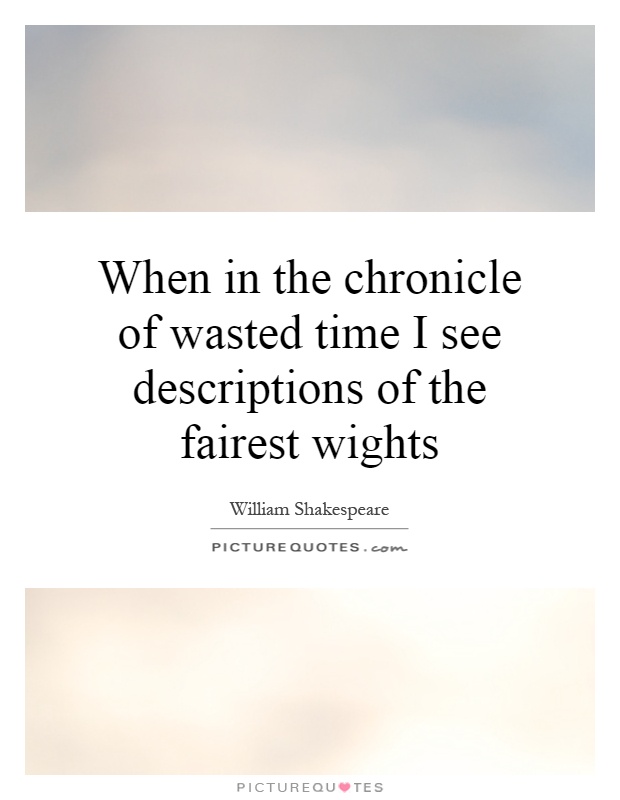When in the chronicle of wasted time I see descriptions of the fairest wights

When in the chronicle of wasted time I see descriptions of the fairest wights
"When in the chronicle of wasted time I see descriptions of the fairest wights" is a line from Sonnet 106 by William Shakespeare. In this sonnet, Shakespeare reflects on the passing of time and how it affects the beauty of youth. The term "wights" refers to people or beings, and in this context, it refers to those who are considered the fairest or most beautiful.Shakespeare begins the sonnet by acknowledging the passing of time and how it has affected the beauty of those he once admired. He describes how the fairest wights, who were once the epitome of beauty, have now faded and lost their allure. This theme of the transience of beauty is a common one in Shakespeare's works, as he often explores the fleeting nature of youth and the inevitability of aging.
The use of the word "wasted" in the line "chronicle of wasted time" suggests that time is being squandered or not used to its full potential. This could be interpreted as a commentary on how society values youth and beauty above all else, often neglecting the wisdom and experience that comes with age. Shakespeare seems to be lamenting the fact that the beauty of youth is often wasted or not fully appreciated until it has passed.
The sonnet can also be seen as a reflection on the nature of beauty itself. Shakespeare questions the value of physical beauty when it is ultimately fleeting and temporary. He suggests that true beauty lies not in outward appearances, but in the enduring qualities of the soul.
Overall, "When in the chronicle of wasted time I see descriptions of the fairest wights" is a poignant reflection on the passage of time and the transient nature of beauty. Shakespeare's words serve as a reminder to appreciate the beauty that surrounds us, both in youth and in age, and to value the inner qualities that endure long after physical beauty has faded.












 Friendship Quotes
Friendship Quotes Love Quotes
Love Quotes Life Quotes
Life Quotes Funny Quotes
Funny Quotes Motivational Quotes
Motivational Quotes Inspirational Quotes
Inspirational Quotes